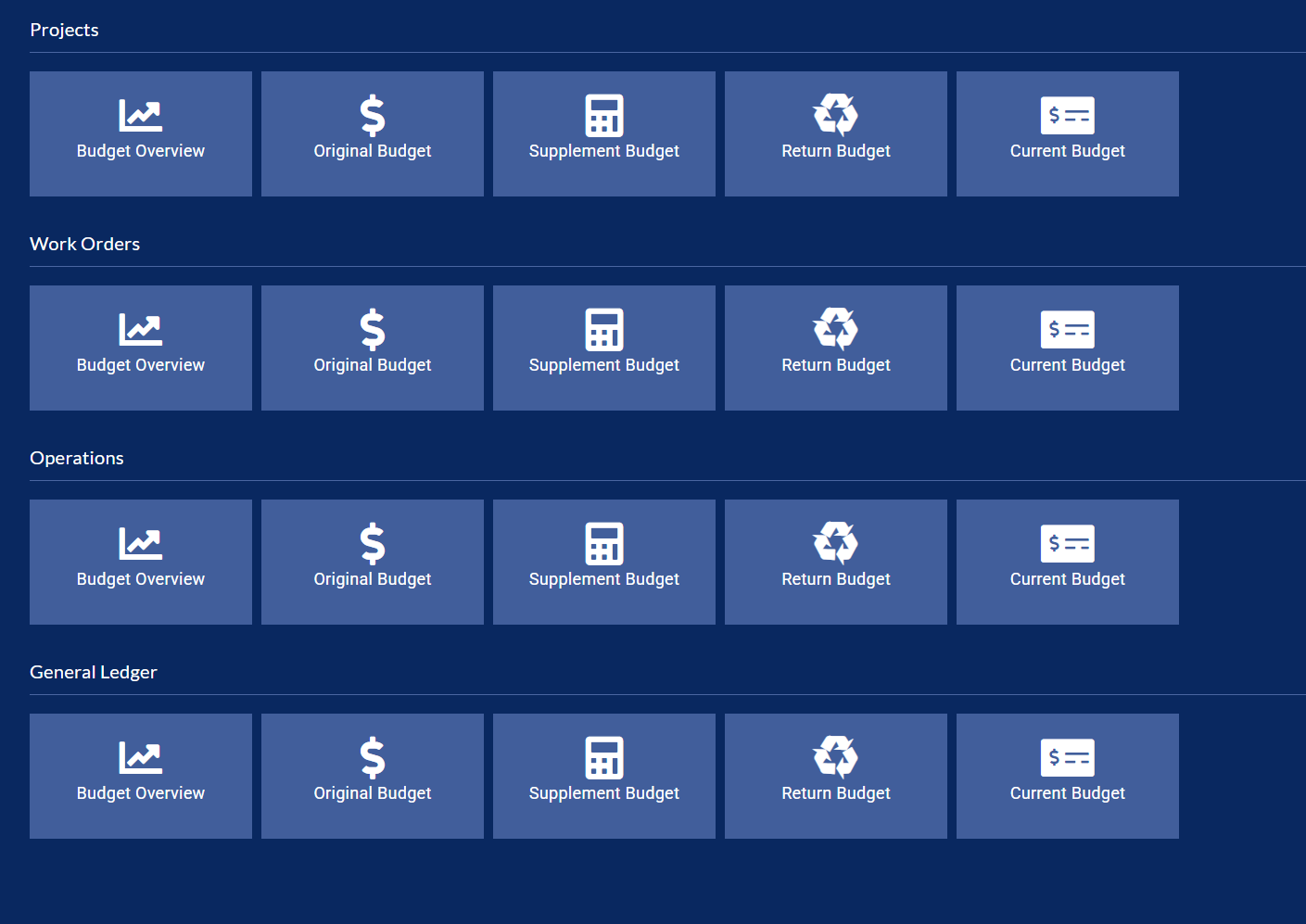
Budget Management: Introduction
In today’s fast-paced business environment, effective budget management is not just a financial necessity—it’s a strategic advantage. Whether you’re overseeing complex projects, maintaining critical assets, managing operational workflows, or tracking general ledger expenses, having a unified system to plan, monitor, and adjust budgets is essential. That’s where the Budget Management module in OneBusiness ERP shines.
Designed to support granular financial oversight across multiple domains, the Budget Management module empowers organizations to allocate resources wisely, respond to changing conditions, and maintain fiscal discipline—all within a single, integrated platform.
OneBusiness ERP-Budget Management Module
Unified Financial Control for Projects, Maintenance, Operations & GL
Overview
The Budget Management module in OneBusiness ERP empowers organizations to plan, monitor, and adjust budgets across key domains:
|
Domain |
Purpose |
|---|---|
|
Projects |
Budget for capital/internal projects |
|
Plant Maintenance |
Allocate funds for preventive/corrective tasks |
|
Operations Orders |
Manage recurring/ad-hoc operational budgets |
|
General Ledger |
Monthly budgeting against GL accounts |
Budget Lifecycle Features
Each domain supports a full budgeting lifecycle:
|
Feature |
Description |
|---|---|
|
Budget Overview |
Snapshot of planned, supplemented, returned, and consumed budgets |
|
Original Budget |
Initial allocation baseline |
|
Supplement Budget |
Add funds mid-cycle for evolving needs |
|
Return Budget |
Release unused funds for reallocation |
|
Current Budget |
Real-time net available budget |
1. Budget Overview
This dashboard provides a consolidated view of all budget entries—planned, supplemented, returned, and consumed. Users can filter by domain, time period, or cost center to get a snapshot of financial health.
2. Original Budget
The starting point for any financial plan. Users can define the initial budget allocation for a project, work order, or GL account. This forms the baseline against which all future changes and actuals are measured.
3. Supplement Budget
Need to increase funding mid-cycle? The supplement budget function allows users to add additional funds to existing budgets. This is especially useful for projects with evolving scopes or maintenance tasks that exceed initial estimates.
Not all allocated funds get used. With the return budget feature, users can release unused budget amounts back to the pool, improving overall resource utilization and enabling reallocation to higher-priority areas.
5. Current Budget
This reflects the net available budget after all supplements and returns. It’s the real-time figure that decision-makers rely on to assess spending capacity and make informed choices.
GL Monthly Budgeting
-
Set monthly budgets per GL account
-
Track actual expenses automatically
-
Receive alerts for budget overruns
-
Analyze variances for better forecasting
Integration & Automation
-
Budget checks during procurement and order creation
-
Real-time expense tracking
-
Approval workflows for supplements/returns
-
Seamless integration with Finance, Projects, and Procurement modules
Budget Management Key Benefits
-
Unified budgeting across all domains
-
Real-time visibility and control
-
Flexible adjustments with audit trails
-
Smarter, data-driven financial decisions
Empower Your Financial Strategy
OneBusiness ERP’s Budget Management module ensures every dollar is aligned with your goals—whether you’re managing projects or tracking monthly GL expenses.
Would you like this formatted into a PowerPoint slide deck next? I can create a 3–5 slide outline with suggested visuals and layout.




